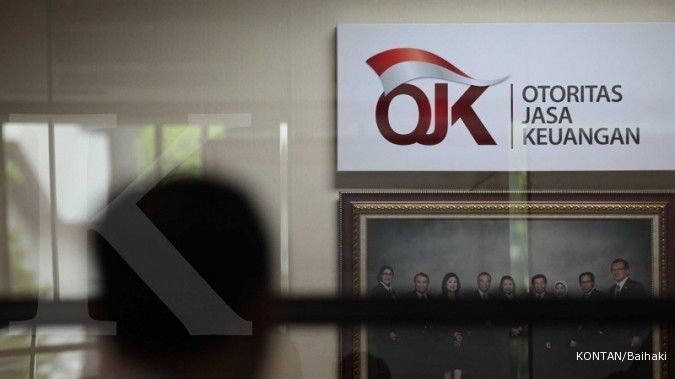JAKARTA. The government has told regional administrations not to issue municipal bonds too readily, as any failure in regional budget management could lead to a potential default that could impact investors’ confidence in Indonesia. The central government was now evaluating a proposal by the West Java provincial administration for a municipal bonds issuance worth Rp 4 trillion (US$328 million), as the province sought additional funding to finance its infrastructure projects, Finance Minister Chatib Basri said in an interview over the weekend. He said other regions such as Jakarta and East Java may follow suit, but stopped short of applauding them for a plan that many analysts and investors deem a breakthrough in project-financing strategy at the provincial level. “I don’t want a case of Orange County happening here,” Chatib said, referring to a county in the US state of California whose municipal bond issuance in the mid-1990s ended in a default. The finance minister argued that, for Indonesia’s infrastructure development, money was not the main concern for regional administrations; they instead faced problems in their project planning and land acquisition processes. At the end of 2013, around Rp 116 trillion worth of funds earmarked for regional administrations had been left idle and undisbursed, up from Rp 99 trillion a year earlier, according to data from the Regional Autonomy Watch (KPPOD). “We need to ensure that they [regional administrations that issue municipal bonds] have good budget-management capabilities,” Chatib said. “Once a regional administration defaults on its debt, investors will think twice about entering our financial sector.” The West Java administration is currently seeking approval from the Finance Ministry and the Financial Services Authority (OJK) for its plan to issue municipal bonds worth Rp 4 trillion, the first in the country, to support the financing of the Kertajati International Airport. M. Taufik BS, the head of economic administration with the West Java secretariat, said in January that the municipal bonds might have a maturity of five years and a coupon rate of between 8 and 9 percent. The central government’s five-year rupiah bonds currently yield 8.25 percent, data from Asian Bonds Online shows. “The assessment process for municipal bonds is similar to corporate bonds, as the risk profile of the regional administration will be rated by ratings agencies such as Pefindo,” explained Dini Agmivia Anggraeni, a fixed-income analyst with Maybank Kim Eng Securities. As municipal bonds were a new financial instrument in the Indonesian market, the first issuance would become the benchmark for investors, she said. In the case of West Java, issuing Rp 4 trillion worth of bonds in one go may be too big, Dini said, suggesting that the issuance should be performed gradually. “Investors should be careful about placing their funds in municipal bonds, as they need to evaluate the ability of a regional government to pay its debts and interest,” said I Made Adi Saputra, a fixed-income analyst with BNI Securities. “This will be the first time our regional administrations will be responsible to pay their debts and interest, and some provinces may have different budget-management abilities than others,” he stated. (Satria Sambijantoro)
Municipal bonds under careful assessment
JAKARTA. The government has told regional administrations not to issue municipal bonds too readily, as any failure in regional budget management could lead to a potential default that could impact investors’ confidence in Indonesia. The central government was now evaluating a proposal by the West Java provincial administration for a municipal bonds issuance worth Rp 4 trillion (US$328 million), as the province sought additional funding to finance its infrastructure projects, Finance Minister Chatib Basri said in an interview over the weekend. He said other regions such as Jakarta and East Java may follow suit, but stopped short of applauding them for a plan that many analysts and investors deem a breakthrough in project-financing strategy at the provincial level. “I don’t want a case of Orange County happening here,” Chatib said, referring to a county in the US state of California whose municipal bond issuance in the mid-1990s ended in a default. The finance minister argued that, for Indonesia’s infrastructure development, money was not the main concern for regional administrations; they instead faced problems in their project planning and land acquisition processes. At the end of 2013, around Rp 116 trillion worth of funds earmarked for regional administrations had been left idle and undisbursed, up from Rp 99 trillion a year earlier, according to data from the Regional Autonomy Watch (KPPOD). “We need to ensure that they [regional administrations that issue municipal bonds] have good budget-management capabilities,” Chatib said. “Once a regional administration defaults on its debt, investors will think twice about entering our financial sector.” The West Java administration is currently seeking approval from the Finance Ministry and the Financial Services Authority (OJK) for its plan to issue municipal bonds worth Rp 4 trillion, the first in the country, to support the financing of the Kertajati International Airport. M. Taufik BS, the head of economic administration with the West Java secretariat, said in January that the municipal bonds might have a maturity of five years and a coupon rate of between 8 and 9 percent. The central government’s five-year rupiah bonds currently yield 8.25 percent, data from Asian Bonds Online shows. “The assessment process for municipal bonds is similar to corporate bonds, as the risk profile of the regional administration will be rated by ratings agencies such as Pefindo,” explained Dini Agmivia Anggraeni, a fixed-income analyst with Maybank Kim Eng Securities. As municipal bonds were a new financial instrument in the Indonesian market, the first issuance would become the benchmark for investors, she said. In the case of West Java, issuing Rp 4 trillion worth of bonds in one go may be too big, Dini said, suggesting that the issuance should be performed gradually. “Investors should be careful about placing their funds in municipal bonds, as they need to evaluate the ability of a regional government to pay its debts and interest,” said I Made Adi Saputra, a fixed-income analyst with BNI Securities. “This will be the first time our regional administrations will be responsible to pay their debts and interest, and some provinces may have different budget-management abilities than others,” he stated. (Satria Sambijantoro)





